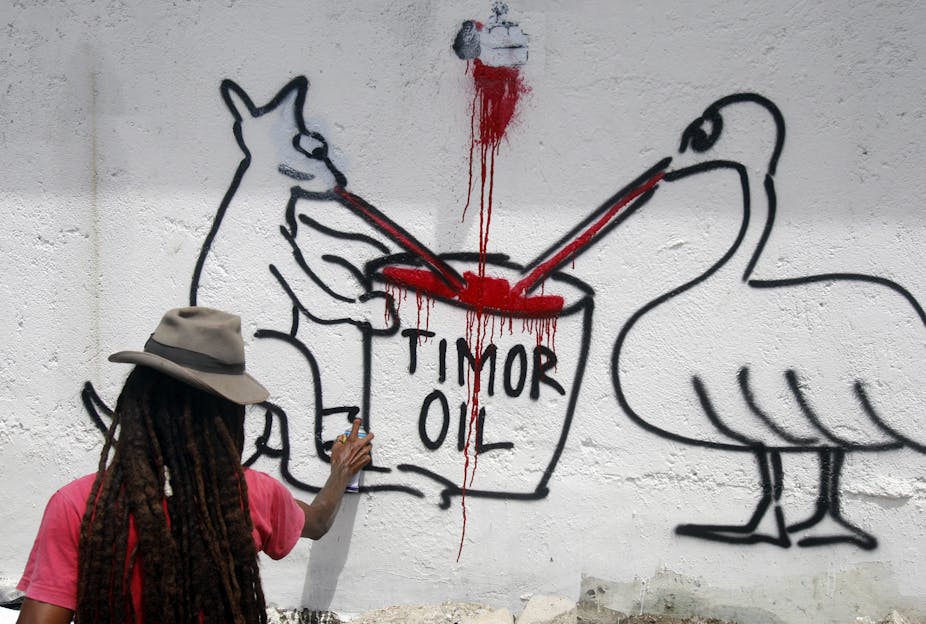Much of the media commentary on the government prosecution of Witness K and his lawyer Bernard Collaery has focused on government duplicity in suppressing the trial until it had its oil and gas treaty signed with Timor-Leste.
But this focus on government hypocrisy has neglected the accountability of the director of public prosecutions, Sarah McNaughton. The prosecution policy of the Commonwealth says:
The decision to prosecute must not be influenced by any political advantage or disadvantage to the government.
McNaughton’s job is to be the key politically independent actor in the process. She must be a check on state political revenge.
This is why the case should of course be in open court, so the public can see how the DPP justifies its independence in the case.
Read more: When whistleblowers are prosecuted, it has a chilling effect on press freedom in Australia
The reason people are worried about the case is that it has the appearance of state revenge against Witness K, who complained through proper channels about the illegality of the bugging he was asked to do, but a decade on served the public interest by blowing the whistle.
Alexander Downer was foreign minister when our international intelligence services were moved away from their counter-terrorism work to focus on commercial espionage on behalf of oil magnates who later offered him a lucrative consultancy. Witness K went public after Downer started working for the consultancy.
So, let the public see in open court whether this is, or is not, a coin-for-the-crown-case that rightly provoked a whistleblower, and not a political revenge case.
Public confidence has been shaken
An even greater concern is that K’s lawyer, Collaery, has been swept up in the government’s prosecution.
From assault to complex commercial crimes, it is common for both sides to make allegations of criminality against the other. We expect the DPP to show independence in assessing who is the greatest victim of crime in complex cases like this. That person will be the least likely to be prosecuted.
The prosecution policy of the Commonwealth also requires the DPP to take into account the views of crime victims in deciding how to manage its deliberations, not only about whether to prosecute. In this case, the public needs to see what kind of victim support services are being provided to Collaery.
For example, the DPP should be asking the government as one of the alleged offenders to make one very public announcement. This is that Australia will continue to abide by the spirit of the International Court of Justice order that the government keep sealed the documents it seized from Collaery’s office in 2013.
The Commonwealth should also assure the public that it will continue to desist from spying on Collaery’s legal work and any bugging or invasion of Collaery’s office.
Read more: Lawyer and witness face charges under spy laws, raising questions of openness and accountability
Further, the prosecution policy says the government should avoid cases that “undermine the confidence of the community in the criminal justice system”.
That confidence has already been shaken by this case. It will be further shaken if much of it were heard in secret. “Openness” and “accountability” are specified in the policy, binding the DPP to “maintain the confidence of the public it serves”.
Citizen confidence that counter-terrorism laws would not be used against civilians is a public issue. It seems these laws are now hanging over Witness K and Collaery, who most Australians view as patriots rather than terrorists.
Question of resources and timeliness
Lastly, the prosecution policy emphasises that prosecutorial resources are limited. Only those cases most worthy of prosecution should go forward.
Banking and insurance crimes are a real threat to the security of our financial system. These are the kinds of cases where the “public interest” test demands more focused resources, not cases against public-spirited civil servants.
Another element of the prosecution policy is that the passage of time since the alleged offence occurred should also be taken into account.
In this prosecution, the passage of time has been taken into account in the wrong way, delaying prosecution until a political interest of the government has been realised.
Rarely have the courts in our country faced such a moment of truth for our justice values.

